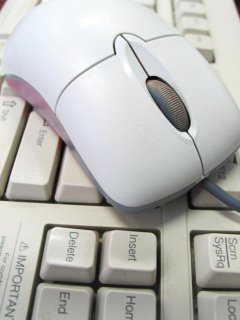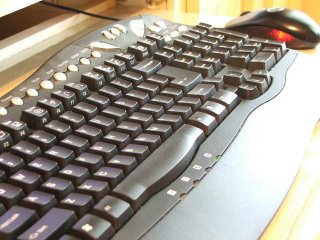
Blog posting errors are rarely discussed in blogging circles. They are a bit of a dirty little secret, you might say.
You know the errors that creep into your blog posts. We all make them at one time or another. Minor blog posting mistakes may be spelling errors; incorrect or misleading photographs; wrong names of people or blogs; links that are missing, don't work, or go to the wrong blog; or simply neglected pings.
More important blog post problems involve knowingly posting incorrect information; predictions or opinions that turned out differently than claimed or expected; failure to cite and link references to blogs or static websites; or claiming someone else's ideas as your own in the form of plagiarism. These, of course, are only a few examples of the errors that can creep into your blog postings.
The question then arises as to what to do about the mistake. The all too obvious answer is to return to the problematic post and change history. Sometimes correcting a blog error is acceptable, and even the proper thing to do. For example, any non-working or misdirected links can and should be repaired as a service to the linked blog. If an intended link was overlooked, and missed in the posting, it's good to return to the post and create the missed link. The cited blogger's traffic and SEO linking benefits shouldn't be reduced because someone messed up a link to their blog.

Spelling errors are the source of some controversy among bloggers. While some bloggers believe that spelling errors and typos should be left intact, I see no problem with going back and fixing those proofreading problems. This is especially important if the typo is a misspelling of someone's name. There is one provision on this recommendation, however. Only the typo can be corrected. No other changes can be made to the post that might change its meaning or intention.
For more serious errors, including incorrect information, the original post must not be altered to change history. Instead, the blogger has a two choices. One option is to make the correction, apology, or retraction in the blog comments section for that post. A second option is to write another post that retracts, corrects, or apologizes for the previous error. The new post should, however, quote the problem area of the previous post, and also link back to the previous post. The link back to the old post is essential.

Posting without crediting sources, or claiming their work as your own, is not acceptable blogging practice. While some would argue that "other bloggers do it", that is no excuse. Maintaining good blogging technique helps everyone in the blogging community. If bloggers want their writing to receive respect, then proper credit must be given to others. Linking to, and properly citing your sources, is simply good blogging practice. It should be practiced by everyone.
In most cases of blog posting errors, common sense will dictate the proper course of action. If fixing a post or link helps another blogger, then it's an acceptable blogging practice.
The best idea, of course, is to always proofread your posts before clicking the Publish button.
Not making the error in the first place means it doesn't have to be corrected.